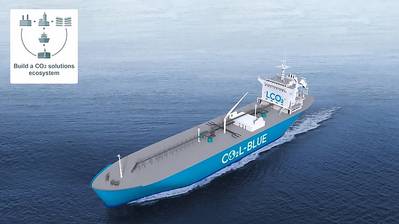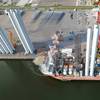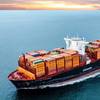Mitsubishi, MOL Complete Liquefied CO2 Carrier Study
Japan's Mitsubishi Shipbuilding, a part of Mitsubishi Heavy Industries (MHI) Group, has completed a concept study with Mitsui O.S.K. Lines (MOL) regarding liquefied CO2 (LCO2) carriers.
The project will combine Mitsubishi Shipbuilding's gas handling technologies developed through the construction of liquified gas carriers (LPG and LNG carriers), with Mitsui O.S.K. Lines' experience in operations for a wide range of vessels, to facilitate the development of technologies for marine transport of CO2, a field where demand is projected to increase globally.
Carbon dioxide capture, utilization, and storage (CCUS) is attracting attention worldwide as an effective means to achieve a carbon-neutral world. LCO2 carriers will play a pivotal role in the value chain by transporting LCO2 to storage sites and facilities for utilization, and demand for these vessels is expected to increase in the future, MHI said.
"Mitsubishi Shipbuilding is actively pursuing commercialization of LCO2 carriers as part of MHI Group's strategic initiative for the energy transition, bringing together technologies and knowledge gained from the construction of liquified gas carriers in an effort, as a marine system integrator, to support decarbonization at sea. This cooperative project is expected to make a significant contribution to the establishment of a CO2 ecosystem in the CO2 transport sector, which will be an essential component of the CCUS value chain," Mitsubishi added.
Mitsui O.S.K. Lines entered the LCO2 marine transport business in March 2021 by making an investment in Larvik Shipping AS, a Norwegian firm with more than 30 years of experience managing LCO2 vessels for industries in Europe.
"Going forward, Mitsubishi Shipbuilding, through this cooperation with Mitsui O.S.K. Lines, will continue its efforts to develop a wide range of technologies for LCO2 carriers essential to establish a CCUS value chain, and contribute to the realization of a carbon-neutral world," Mitsubishi said.













